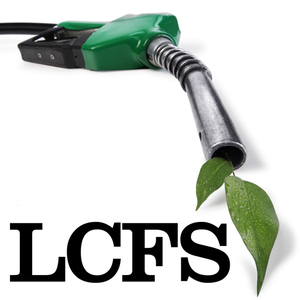Growth Energy highlights ethanol benefits in LCFS comments

March 15, 2023
BY Growth Energy
In comments submitted today to the California Air Resources Board (CARB) following the latest Low Carbon Fuel Standard (LCFS) workshop, Growth Energy, the nation’s leading biofuels trade association, highlighted the growing environmental benefits of bioethanol, in particular the steady decline in bioethanol’s average carbon intensity (CI).
“Growth Energy has previously submitted extensive comments demonstrating the vital role low-carbon biofuels and higher biofuel blends can play in meeting California’s ambitious climate goals,” said Growth Energy Senior Vice President of Regulatory Affairs Chris Bliley in the comments. “As we have noted previously and reiterate here, biofuels have been among the largest contributors to the success of the LCFS program to date and are poised to continue to do so with appropriate updates to the program.”
Advertisement
Bliley noted that biofuels like bioethanol have generated more than 75 percent of LCFS credits and that additional CI reductions are anticipated as a variety of projects at ethanol biorefineries come online starting this year. Growth Energy noted that this change has already been acknowledged in the California Transportation Supply (CATS) emissions models. “The carbon intensity of ethanol has been adjusted in the CATS model to reflect the historical downward trend,” Bliley said. “We appreciate CARB’s recognition of this continued innovation in the industry and hope CARB will continue to update the program using the best and most up to date science.”
Elsewhere in the comments, Growth Energy emphasized the need for CARB to further develop clear policies supporting higher biofuel blends, like E15.
“While we were encouraged to see CARB post the final Tier I report for the multi-media evaluation of E15 as well as the positive emissions results for E15 from the recent testing done by the University of California-Riverside, it is time to expedite the state’s approval of E15 for California consumers and to help drive further immediate GHG emission reductions,” wrote Bliley. “Just recently the Phoenix, Arizona area approved the use of E15 in its Cleaner Burning Gasoline (CBG) program, effectively leaving California and Montana as the only two states that have not approved the use of E15.”
Advertisement
Related Stories
Avfuel Corp., the leading independent supplier of aviation fuel and services, is expanding its sustainable aviation fuel (SAF) footprint with the addition of a new, strategic supply point in Denver, Colorado—the first of its kind in the region.
CVR Energy Inc. on July 30 reported its renewables segment achieved increased throughput during Q2 despite unplanned downtime but reported a net loss of $11 million. The company expects to retroactively claim the 45Z credit for volumes produced.
Total U.S. operable biofuels production capacity expanded in May, with gains for renewable diesel and a small decrease for ethanol, according to data released by the U.S. Energy Information Administration. Feedstock consumption was up.
SAF-producer XCF Global Inc. on July 28 announced it has signed an exclusive, non-binding indication of intent (IOI) with a renewable fuels infrastructure and feedstock solutions company based in the western U.S.
The European Commission on July 28 approved a €36 million ($41.07 million) Danish state aid scheme designed to encourage airlines operating in Denmark to use sustainable aviation fuel (SAF) on domestic routes.
Upcoming Events










